Opinion

Love him or hate him, Malthus is one of those figures who doesn’t go away.
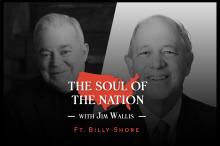
How do we feed kids who are missing nearly 34 million meals each day now that schools are shuttered because of the coronavirus?
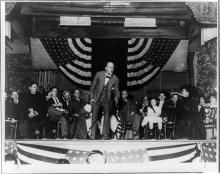
'He was of the working class and loyal to it in every drop of his hot blood to the very hour of his death.'

Trump’s daily press briefings resemble the kind of public idolatry that ancient Caesars engaged in.

For Christians, studying history is an act of love and hope.

Churches across the country are learning that loving one another and our neighbors — while physically distancing ourselves from them — is possible.

Latin American theologian, missiologist, and educator Ruth Padilla DeBorst and Rev. Jim Wallis discuss the importance of social consciousness in the creation of government policy.
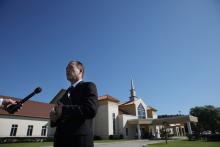
Times of crisis tend to engender apocalyptic thinking. We’re seeing that today during the coronavirus pandemic. Conspiracy theories abound, and some people are talking about the end of the world. Could the current crisis be God’s judgment for sinfulness or our persistent abuse of the environment? Is an apocalyptic reckoning at hand?
3. Their Calling Was to Lay Hands on the Sick. Then Came the Coronavirus.
How the pandemic transformed the lives and ministry of eight Manhattan priests, and what their example can teach the rest of us.
4. Christian ethics and the dilemma of triage during a pandemic
In the current COVID-19 pandemic, medical staff are making triage decisions about who will be saved by artificial ventilation and who will be allowed to die.

The way presidents and governments use language reflects the society they want to construct — and for the United States, presidents have long attempted to build a narrative that hides he real impacts of war and makes the United States look the part of a noble hero. Crisis and pandemics don’t start wars, and they won’t end war, but the United States may use crisis to beat the drums of war.

Nearly 20 years later, we must again push our government to expand global aid to fight the COVID-19 pandemic. As Christians, the moral imperative is clear. But in order to convince the powers at be, we must also argue that protecting the American economy and our national public health requires that we move from investing millions to investing billions — perhaps even trillions — in order to mount an adequate global response.

What faces we see, either in person or in our hearts, carries a sacred and saving significance. Those of us with the luxury of being able to shelter in place because we have adequate space, who can maintain physical distance because there’s no need to be crowded, and who can wash our hands because we never have to think about soap and hot water, can exchange post-Easter greetings in safety, probably on Zoom. We treasure those bonds with one another in a socially isolated time.
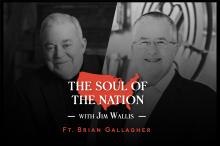
Gallagher calls for work together, especially in the wake of the devastation of the coronavirus.
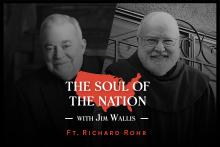
Fr. Richard Rohr and Rev. Jim Wallis discuss the many examples of hope and grace to be found amid the despair of the deadly coronavirus pandemic.
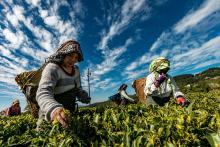
We must listen to women, pay attention to on-the-ground solutions they are already creating, and earnestly follow that leadership at all levels of environmental decision-making.

The growing uncertainty of the COVID-19 pandemic has left many feeling frustrated, losing hope and faith in God, life, family, love, finances, or something else. Even some of the most ardent believers in Christ will have moments when faith falters, when you’re lonely and exhausted, where grief grabs ahold of you, when all that you’ve believed feels empty, and when you can’t see beyond the pain to grasp hope. How do we keep moving forward when the resources on which we depended vanish? This Good Friday and Easter will be like no other. And even though the coronavirus has made planning our lives and Holy Week a bit more challenging, we must not lose sight that the Easter season is truly about hope.

Easter was never meant to go back to normal; but was, and still is, intended to make all things new.
For Christians, it means the proclamation of release over suffering, hope over despair, and life over death. Still, there is no special immunity from COVID-19 granted by physically gathering to worship God.

I have thinking a lot about the after lately. What happens when this is all over? Will we be changed? Will we heed the lessons of a global pandemic, realize we are all connected to each other, fight for systems that keep our own selves safe by protecting the most vulnerable among us? Will we fight for a world where we could actually touch the miracle of a savior who died for the world and then rose again? Or will we only ever be able to glimpse it, but not hold on?

We need to walk together, day by day, through the days of this holy weekend — in the midst of this modern plague. Here I offer my map for that journey.

Easter Sunday is coming. But Saturday is here and it's dark.